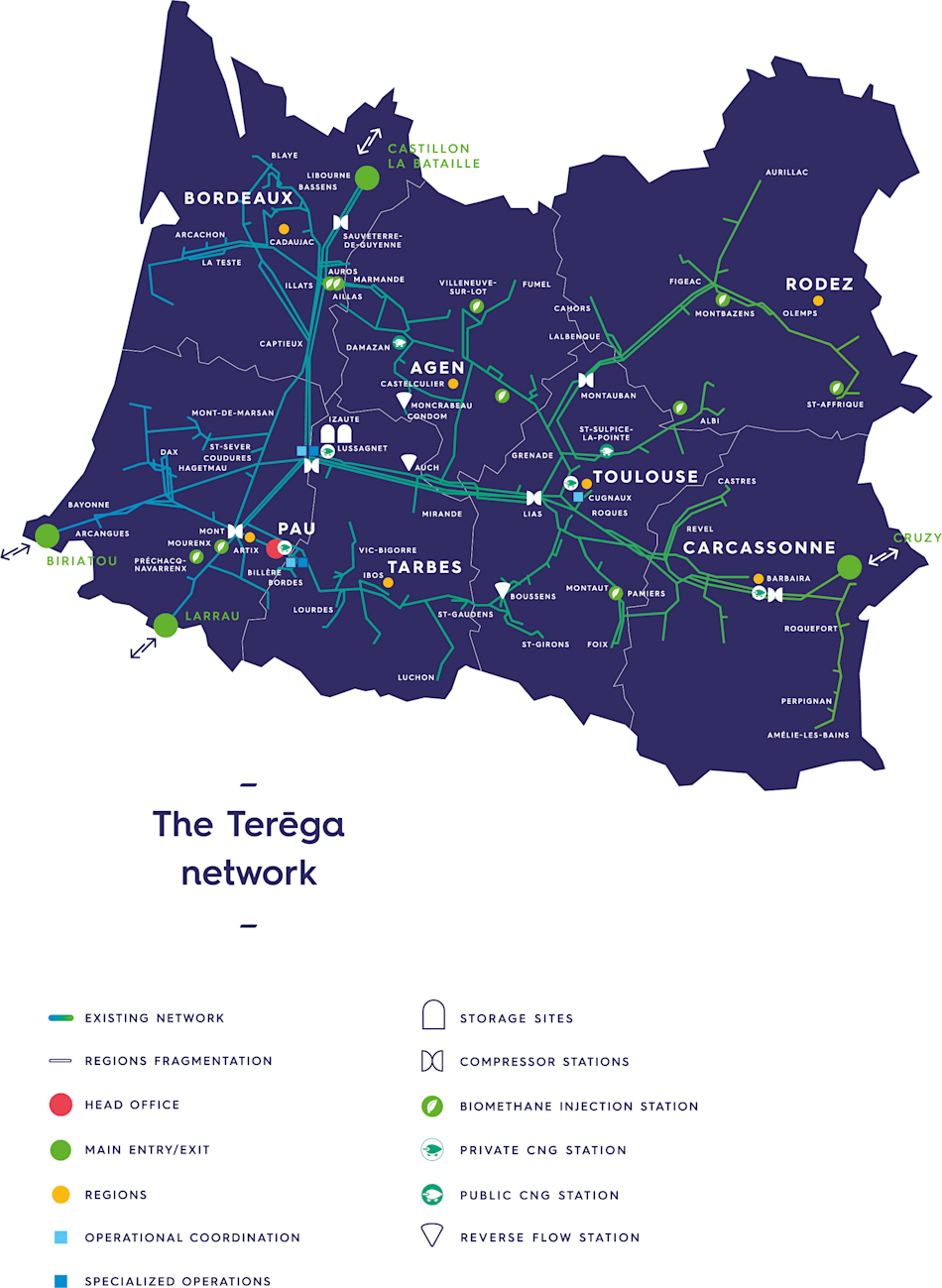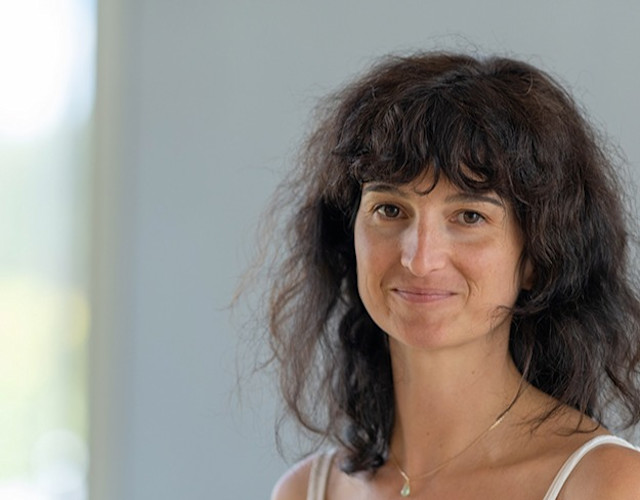Urgence gaz 0 800 028 800

Teréga’s operation of the gas grid: efficiency first
Our transport grid has a number of unique features. It is where North-South and South-North flows and national and European energy challenges come together. It carries the natural gas to users – industry and public distribution – supplying private individuals in particular. It is an essential part of the response to our future energy issues: the connection of biomethane, NGVs, hydrogen.
How are teréga’s gas grid operations organised?
Our gas transport network consists of two parts: the main grid and the regional grid.
The main grid provides a two-way link with adjacent transporters’ grids in France and Spain. In addition, it provides access to the Lussagnet and Izaute storage sites. It is designed to meet the challenges of flows on a European scale;
The regional grid is designed to meet the area’s consumption requirements. It takes the gas from the main grid to the connected consumers. These are often industrial sites consuming considerable quantities of gas. It also carries the gas to distribution grids, supplying consumers in urban and surrounding built-up areas.
Our grid is organised into 7 operational areas: Pau, Bordeaux, Carcassonne, Toulouse, Tarbes, Agen and Rodez. They share the operation of the whole transport grid and associated equipment.

Cutting-edge skills in operating the gas grid
For many years, we have been responsible for the operation, monitoring, maintenance and integrity checking of our physical transport grid. That experience has enabled us to develop cutting-edge expertise, particularly in the operation and simulation of grids, in inspection, in regulatory management, in gas equipment maintenance, and in the monitoring of works and projects.
This means that, with the backing of our support departments, we have all the resources we need to operate our pipelines and associated equipment (compression stations, surface installations).
In the field, our teams are equipped with IT equipment suited to the digital environment, enabling them to provide instant traceability. That allows them to be as agile as possible for any operational activities such as maintenance, monitoring of third party works etc.
Finally, during the operational phase, we conduct ongoing monitoring of every pipeline. Key elements of the monitoring and maintenance programme are:
continuous remote monitoring of the pipeline 24/7;
aerial surveys of pipelines, at least 10 times a year;
survey of the pipeline route on foot or by vehicle every 2 years;
inspection of the pipeline at least every 10 years.
Maintenance
In addition, we have set up an internal team with responsibility for specialist preventive and curative maintenance. With its special skill set, it is ready to undertake work on the whole of our grid at any time.
For teréga, operating a gas grid means being responsible
Since we are a player in the gas market at both the national and European levels, in addition to ensuring the fluidity of transport, we are also expected to act in the public good, to guarantee the continuity of activities, to maintain the safety, reliability and availability of our installations.
As part of our activities, we therefore have to meet certain public service obligations in accordance with the legislation governing businesses operating in the gas sector. Article L 121-32 of the Energy Code sets out those obligations. In particular, we must work to guarantee:
the safety of persons and installations upstream of the end consumer’s connection;
continuity of the natural gas supply;
security of supply;
the quality and price of the products and services provided;
protection of the environment, particularly the application of energy saving measures;
energy efficiency;
use of biogas;
balanced development of the area;
acting as a natural gas supplier of last resort to non-domestic customers engaged in missions in the general interest.
With more than 5,000 km of pipelines, the physical integrity of structures is a key issue, and therefore one of our main priorities. That objective is enshrined in particular in our PARI 2035 (Prevention of Accidents and Industrial Risks) programme. Our collective ambition is clear: innovate to guarantee the continuity of supply through greater agility, reliability and forward planning.
When it comes to infrastructures and the grid, we also have a responsibility toward wider society. It is put into practice through our “Avoid, Reduce, Compensate” (ARC) methodology, to minimise the impact of our activities as much as we possibly can. We prioritise dialogue with all stakeholders (elected representatives, neighbours, authorities etc.). Finally, we get involved at the local level, particularly through partnerships with associations in the area.
How does teréga anticipate the future of gas in its grid operations?
We take part in, anticipate and watch developments in the gas market with a view to energy transition. The creation of Trading Region France (TRF), the emergence of multi-energy smart grids and the development of green gases have all secured gas’s position. It is an energy source that acts as a link between the others, providing both a transition and a response for the future. This is happening through:
Full exploitation of infrastructures and expertise;
Ongoing development of our teams’ skills;
A proactive approach involving ongoing optimisation of the producer-consumer relationship;
Improved competitiveness of our core activities;
Management of infrastructure development and operating costs;
Constant capacity for innovation at all levels of the gas chain;
Development of new activities with a sustainable, responsible approach;
Setting an example in the good management of resources and environmental impacts.

Natacha MerletManager: electricity, instrumentation, automation and assessment (ei2a)Performance and operational safety are the essential drivers of improvement at Teréga. Faced with significant industrial risks, we must ensure our installations are available around the clock.








